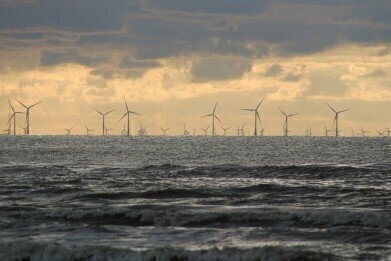Green Energy
How Is Decarbonisation Achieved?
Apr 26 2022
The UK government made headlines in 2019 when it became the first major economy in the world to pass a net-zero emissions law. According to the legislation, the entire country will become carbon neutral by 2050, while the electricity sector is to be decarbonised even sooner by 2035. So how, exactly, is this going to happen? Here’s a closer look at the details below.
By the numbers
At present, we currently consume around 330TWh of energy in the UK each year. However, that figure is expected to rise to 460TWh by 2035, which is almost an increase of 40%. At present, renewables like wind and solar contribute a significant proportion of our power needs (some 43% in 2020, which was the first time that they surpassed fossil fuels). However, experts believe that renewables would have to satisfy at least 86% of electricity demand by 2035 to meet the targets.
That would involve solar power capacity would need to increase by at least half, from 15GW today to between 22GW and 30GW in 13 years’ time. Offshore wind capacity would need to quadruple from 10GW now to 44GW, while onshore wind capacity would also require serious improvements from 14GW today to between 30GW and 44GW in 2035.
Backup power
Renewables are all well and good, but they are prone to intermittency. As such, storage solutions are needed to keep the surplus energy they produce on particularly sunny and windy days for those which are less convenient for energy generation. Nuclear energy could also provide a reliable means of backup power, though power stations take a long time and a lot of money to build and are fraught with controversy over their safety. What’s more, much of the UK’s current nuclear power capacity is due to reach the end of its lifespan and become decommissioned in the near future.
Regardless, it’s expected that gas will invariably be required to provide backup power in times of high demand. This is because it’s dependable and easy to generate and, despite being a fossil fuel, is far less damaging than coal for the environment. Nonetheless, gas analysis for carbon capture and storage (CCS) is important in removing the pollutants from the flue of gas power stations at the point of emission.
Significant investment
Of course, all of these grand plans are going to require financial backing to make them happen. According to the Climate Change Committee (CCC), it will need at least £50 billion of investment every year from 2030 onwards if the objective is to be achieved.
Those funds will not only go towards ramping up renewable capacity and installing CCS equipment at existing power facilities, but also incentivising uptake of cleaner methods of heating, lighting and powering our homes and businesses. What’s more, the transportation industry must also undergo a massive overhaul, with electric vehicles (EVs) replacing traditional combustion engines across the board. Accordingly, EV charging stations must also be rolled out throughout the country, as well.
Events
IWA World Water Congress & Exhibition
Aug 11 2024 Toronto, Canada
Aug 25 2024 Stockholm, Sweden and online
Sep 03 2024 Mexico City, Mexico
Sep 03 2024 Mexico City, Mexico
Sep 03 2024 San Diego, CA, USA














